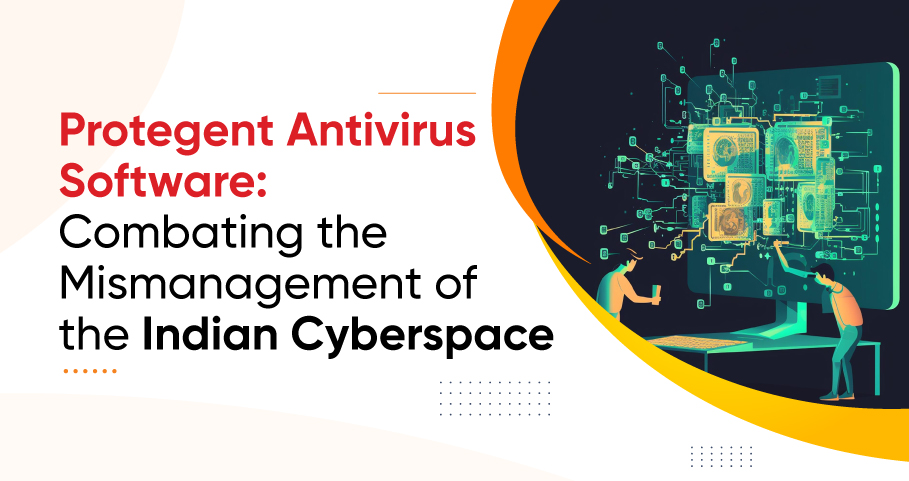
Indian Cybersecurity: Unraveling a Pattern of Mismanagement
In today’s hyper-connected world, where information is a currency of its own, the role of cybersecurity cannot be overstated. As the digital landscape continues to expand, countries worldwide are investing substantial resources to safeguard their digital infrastructure and protect sensitive data.
India, with its rapidly growing technology sector and vast online population, finds itself in the midst of this digital revolution. However, despite its potential and promise, Indian cybersecurity has been plagued by a pattern of mismanagement that raises concerns about the nation’s ability to effectively protect its digital assets.
In 2021, India’s Unified Payments Interface (UPI) processed 39 billion transactions, worth $940 billion, exceeding 30% of the country’s GDP. Furthermore, in the fiscal year 2020-21, digital payment systems in India exhibited robust expansion, with transaction volume experiencing a substantial growth of 26.2%.
Cybercrime Events In India
Recent incidents have underscored the susceptibilities inherent in our rapidly expanding digital networks. The initial instance aimed at the servers of India’s All India Institute of Medical Science (AIIMS), resulting in the compromise of approximately 40 million health records and triggering a system outage lasting for a duration of two weeks.
Yet another assault saw the intrusion of a ransomware group named BlackCat into the parent company of Solar Industries Limited, a manufacturer of ammunition and explosives under the Ministry of Defence. This breach led to the illicit acquisition of more than 2 Terabytes of data.
These occurrences underscore the pressing requirement for heightened cybersecurity protocols aimed at averting the recurrence of such attacks in the times ahead.
The frequency and financial impact of ransomware attacks are on the rise, with more than 75% of Indian enterprises having encountered such incidents. Each breach inflicts an average damage cost of ₹35 crores.
India has already established itself as one of the prime targets in the realm of cyberspace assaults. In a notable incident from May 2021, the country’s national airline, Air India, fell victim to a cyber-intrusion, leading to the compromise of data belonging to 4.5 million customers worldwide. In a separate incident back in October 2019, an attempted cyberattack aimed at the Kudankulam Nuclear Power Plant raised concerns about critical infrastructure vulnerabilities.
In February 2022, a ransomware attack disrupted the Management Information System at the Jawaharlal Nehru Port Container Terminal, a key maritime facility in India’s leading container gateway.
Within the contents of this blog, we embark on an exploration of the complexities surrounding Indian cybersecurity. Our examination encompasses the patterns of mismanagement that have arisen, as well as the effective remedies that hold the potential to chart a course toward a digitally secure future.
The Rise of Cyber Threats
As the world has become more reliant on digital technology, the threat environment has changed to keep up. Cybercriminals, state-sponsored actors, and hacktivists are continuously searching digital systems for vulnerabilities, hoping to exploit flaws for personal gain or to damage key infrastructure. With its rising digital economy and growing internet user population, India has become an appealing target for hackers.
One of the primary mismanagement issues in Indian cybersecurity is the lack of a comprehensive and coordinated approach to countering these threats. While the government and various private entities have taken steps to fortify their digital defenses, the absence of a unified strategy leaves room for gaps and inconsistencies in the overall security posture. This fragmentation hampers the nation’s ability to respond effectively to emerging threats.
Antivirus: A Cornerstone of Digital Defense
Antivirus software is one of the most important tools for identifying and combating malware and other dangerous software in the field of cybersecurity. Antivirus software is critical in avoiding unwanted access, data breaches, and malware transmission inside digital ecosystems. The efficiency of antivirus software, on the other hand, is dependent on regular updates, comprehensive scanning capabilities, and a proactive approach to new threats.
Despite the importance of antivirus software, India’s cybersecurity landscape has exhibited a lack of emphasis on this critical component. While organizations and individuals do deploy antivirus solutions like Protegent, there remains a concerning disparity in the adoption rates. This pattern of mismanagement highlights a significant vulnerability within India’s digital infrastructure, leaving systems exposed to a multitude of cyber risks.
The Human Factor: A Key Challenge
Technology is simply one component of the complex web of cybersecurity. The human aspect is equally significant in defining a nation’s overall security posture. Educating consumers about possible dangers and safe online conduct is critical, from cybersecurity awareness campaigns to encouraging a culture of best practices.
However, in India, there is a palpable deficit in cybersecurity awareness and education. This knowledge gap extends from individual users to small and medium-sized enterprises (SMEs) and even to large corporations. A lack of understanding of the risks associated with cyber activities, combined with inadequate training and limited resources, has perpetuated a scenario where many individuals and organizations remain ill-equipped to defend themselves against cyber threats.
Antivirus: Bridging the Gap
To address this pattern of mismanagement, antivirus software can play a pivotal role in bridging the cybersecurity awareness gap. By promoting the importance of these solutions and integrating them into comprehensive cybersecurity strategies, India can empower its users to take proactive measures against cyber threats.
Consider a scenario in which antivirus software is not just acknowledged as a necessary utility, but is also made available to a broad spectrum of consumers. Government measures, collaborations with private-sector cybersecurity organizations, and educational campaigns might all help to increase antivirus adoption rates. Furthermore, these software manufacturers might modify their solutions to meet the specific demands of Indian customers, taking into consideration local languages, cultural subtleties, and the distinct threat landscape.
Collaboration and International Cooperation
In the interconnected world of cyberspace, no country is an island. Cyber threats transcend borders, making international cooperation a necessity in the fight against cybercrime. Sharing threat intelligence, collaborating on cybersecurity research, and engaging in joint exercises are crucial components of holistic strategic development.
Unfortunately, India’s habit of incompetence extends to its approach to international cybersecurity engagement. While the country has taken part in various projects and signed bilateral agreements, there is still space for more participation. Strengthening relationships with global cybersecurity groups, developing information-sharing systems, and actively engaging in international conferences might help India combat cross-border cyberattacks.
Antivirus: Fueling Global Collaboration
Antivirus software has the capacity to ignite heightened international collaboration within the cybersecurity realm. Through a concerted focus on the significance of total security solutions, India has the opportunity to establish itself as an assertive participant in the worldwide cybersecurity stage. Joint initiatives aimed at crafting and disseminating antivirus technologies, threat insights, and optimal approaches could culminate in a fortified digital environment, spanning not only India but also globally.
Conclusion
The importance of robust cybersecurity practices cannot be overstated as India moves toward a digital future. Indian cybersecurity has been plagued by mismanagement, raising questions about the nation’s ability to protect its digital assets effectively. Antivirus software plays a vital role in addressing this pattern. Leading plays that are performing a critical role in cybersecurity are Quick Heal Antivirus, Protegent, and Kaspersky. Addressing the pattern of mismanagement requires a concerted effort from all stakeholders, backed by a shared commitment to creating a safer and more secure digital environment for India and the world.




